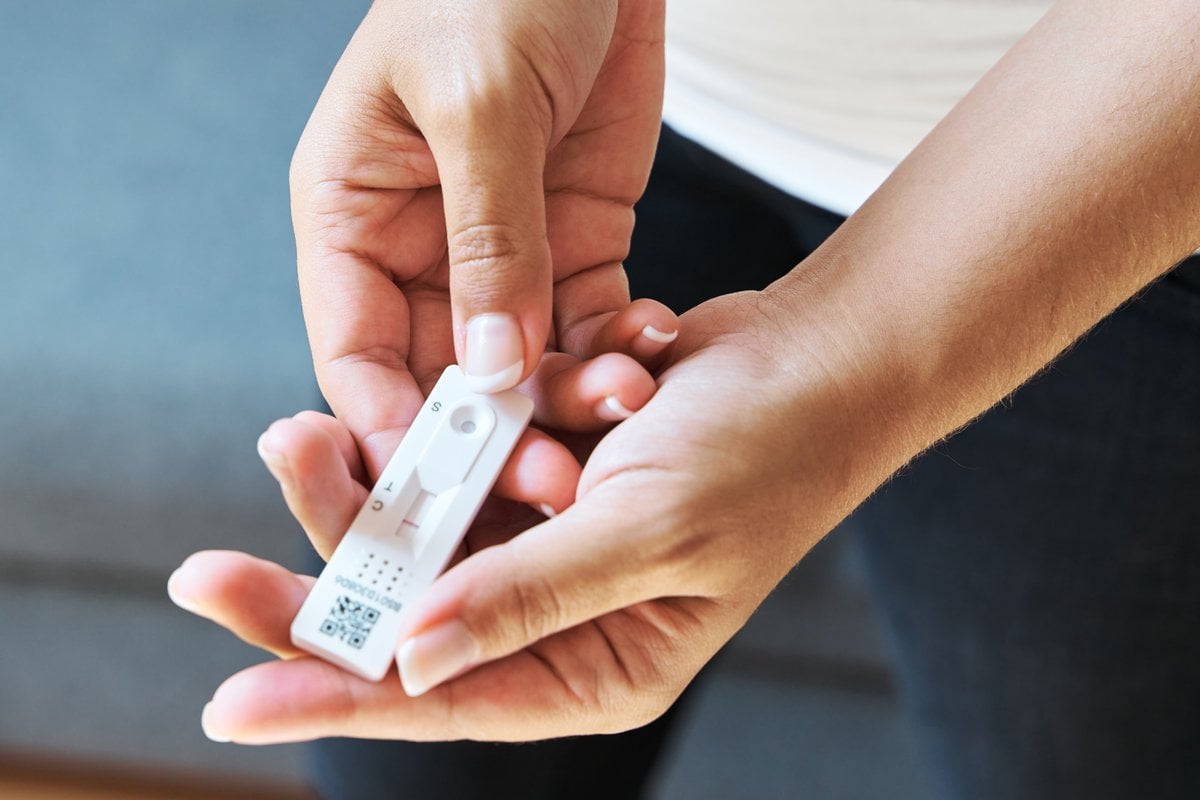
In only a matter of days, Australians will be able to test for COVID-19 from the comfort of their own homes, after the Therapeutic Goods Administration (TGA) approved rapid antigen tests from Monday November 1.
The at-home testing kits that have been used overseas for some time now will make detecting coronavirus quick and easy, returning a result in 15 to 20 minutes.
Here's everything you need to know about rapid antigen tests before they become available.
What is a rapid antigen test?
A rapid antigen test is a COVID-19 test you can do on yourself that will tell you whether or not you have the virus.
It involves a nasal swab (yep, you sadly have to stick it up your nose the same way they would at a COVID-19 testing clinic) that you place into a chemical solution.
And instead of waiting 24 hours or more for the results, you will see a positive or negative result in 15 to 20 minutes.
Watch: Prime Minister Scott Morrison calls for states to open their borders. Post continues after video.
What are the benefits of rapid antigen testing?
Quite simply, rapid antigen testing is the fastest way to test whether you have the virus. It's especially beneficial for anyone who shows no symptoms but wants to make sure they are COVID-free.

Top Comments